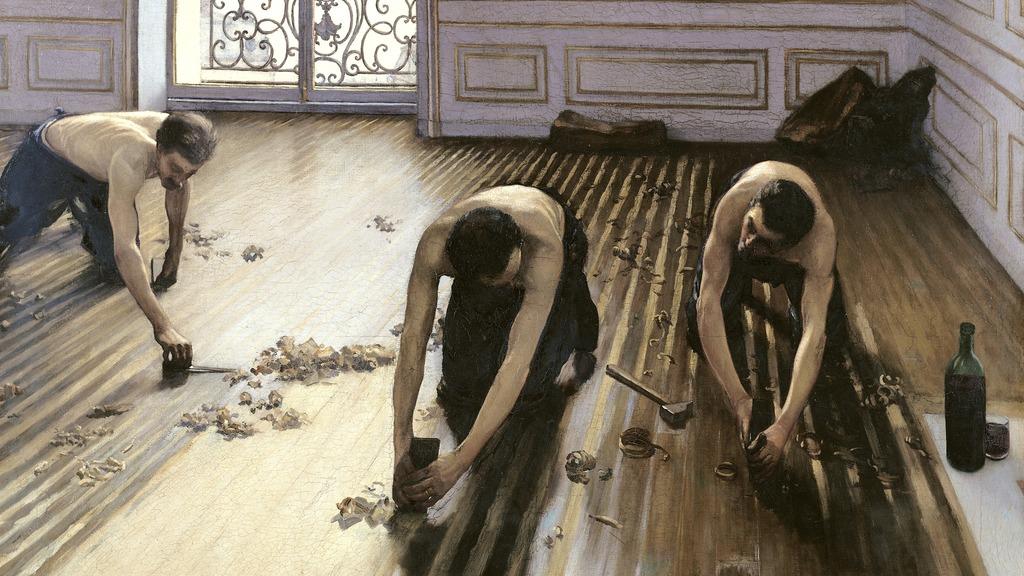In literature, the leaders are called Balzac, Maupassant, Zola.
The exalted dreamers and romantics of the past century exasperate them.
“To describe society in its entirety, as it is”
, aims the author of the Human Comedy.
Writers, they want to be journalists, botanists, naturalists.
They dissect reality in a cold and clinical manner, documenting themselves meticulously.
The earth is not the
“blue like an orange”
of Paul Eluard, but that of the sweat of the plowmen.
Often, realism goes even further.
Of life, he then intends to give a
“more complete, more striking, more convincing vision than reality itself”
, as Maupassant explains in his preface to
Pierre et Jean
.
Far from the idealist filter, reality is shown crudely, in its grossest asperities.
To discover
Crosswords, Sudoku, 7 Letters... Keep your mind alert with Le Figaro Games
Also read: Did you know that people “disputed” a lot in the Middle Ages?
But in philosophy, it's a little different.
By “realism”
we could understand
a pragmatic vision of man and the world.
A current which would focus on showing their limits, their vanities and their miseries more than the potential for the sublime that they carry.
It's about something completely different.
“
Realism”
is, simply, an act of confidence in the way we grasp and understand what is around us.
It gives reason its letters of nobility, beyond overly formal and errant speeches, the fascination of the image.
What exactly does this philosophical system consist of?
Have confidence in experience
There is already, surprisingly, a certain realism in Plato.
Ideas are for him in fact the fullness of being, the only existing thing.
The
“realism of ideas”
is therefore paradoxically a radical idealism.
The ancient philosopher does not evacuate the material, the sensitive.
It would be dangerous, however, to abandon ourselves to it completely, he tells us.
You have to trust it like you trust your shadow.
The central point of Platonic teaching is above all the hermetic closure that it establishes between the sensible world - that of plants, men, stones that we can touch - and the intelligible world - that of ideas.
Aristotle, faithful disciple from the beginning, did not take long to break away from it.
This last thinker refuses to admit the separate existence of ideas.
Plato's heirs came to say that the body was a prison for the soul, that the senses provided only misleading information.
Like this stick which appears broken when it is immersed in water, which Descartes will not fail to point out.
For Aristotle, on the contrary, the experience of sight, touch, memory and imagination hold a central place.
It is through the
“senses”
that we come to know the truth.
The abstraction of ideas
We therefore qualify as
“realist”
someone who establishes continuity between sensitive knowledge and intellectual knowledge.
It is abstraction that allows this link.
When you stroke your dog's back, when you have in mind the general idea of
"dog"
, you are in fact considering the same reality.
An abstract idea, in itself, does not exist.
It only results from the sum of past experiences.
The principles of the universe, the foundations of existence are therefore accessible to everyone.
Aristotle starts from the observation of nature to posit that all things are governed by the idea of a finality.
Nothing is in vain.
The flower is all tending towards its fruit, man desires happiness, the animal only acts for the survival of the species, intelligence is made for the truth...
Also read “Cynicism”, a philosophy of transgression
Realism undermines relativism.
My intelligence is correct when it agrees with the very reality of the world.
It does not seek first to know the concept, the idea, but the real, which has a meaning in itself.
Michelangelo, while sculpting, said he was releasing from the stone the statue that was already there.
“
Realism”
offers an identical path: letting ourselves be surprised by an inner truth in what surrounds us, to be discovered and not constructed.
How do you determine that something is beautiful?
Or we must agree on what we consider beautiful, varying according to eras and civilizations.
Or what is beautiful is what causes a certain pleasure in me.
“
Realism”
chooses a third way: aesthetic properties are the real properties of things.
Medieval realism
The Middle Ages were feverish with fiery academic controversies.
The most important, without doubt, is what we call
“the quarrel of universals”
.
“ Universals
”
are concepts, general categories,
“humanity”
or
“health”
for example.
Do they really exist, or are they just conventional symbols?
The “realist”
philosophers
are then opposed by the
“nominalists”
.
For the most radical realists, universals exist as well as singular things.
For moderate realists, like Thomas Aquinas, they also exist but in a different mode, in an
"intentional"
way , by mode of abstraction.
But for the
“nominalists”
, like William of Occam, only what is singular exists.
Thomas Aquinas, this Dominican from the Sorbonne, takes from Aristotle the confidence that we can have in our “senses”: our memory, our imagination, our touch... And above all, confidence in what surrounds us .
Far from the existential autonomy that Sartre will pose, from the distrust in the capacities of Kant's reason, from the doubting of the existence of Heidegger's world, "realism" has faith in reality and in its intelligibility.

